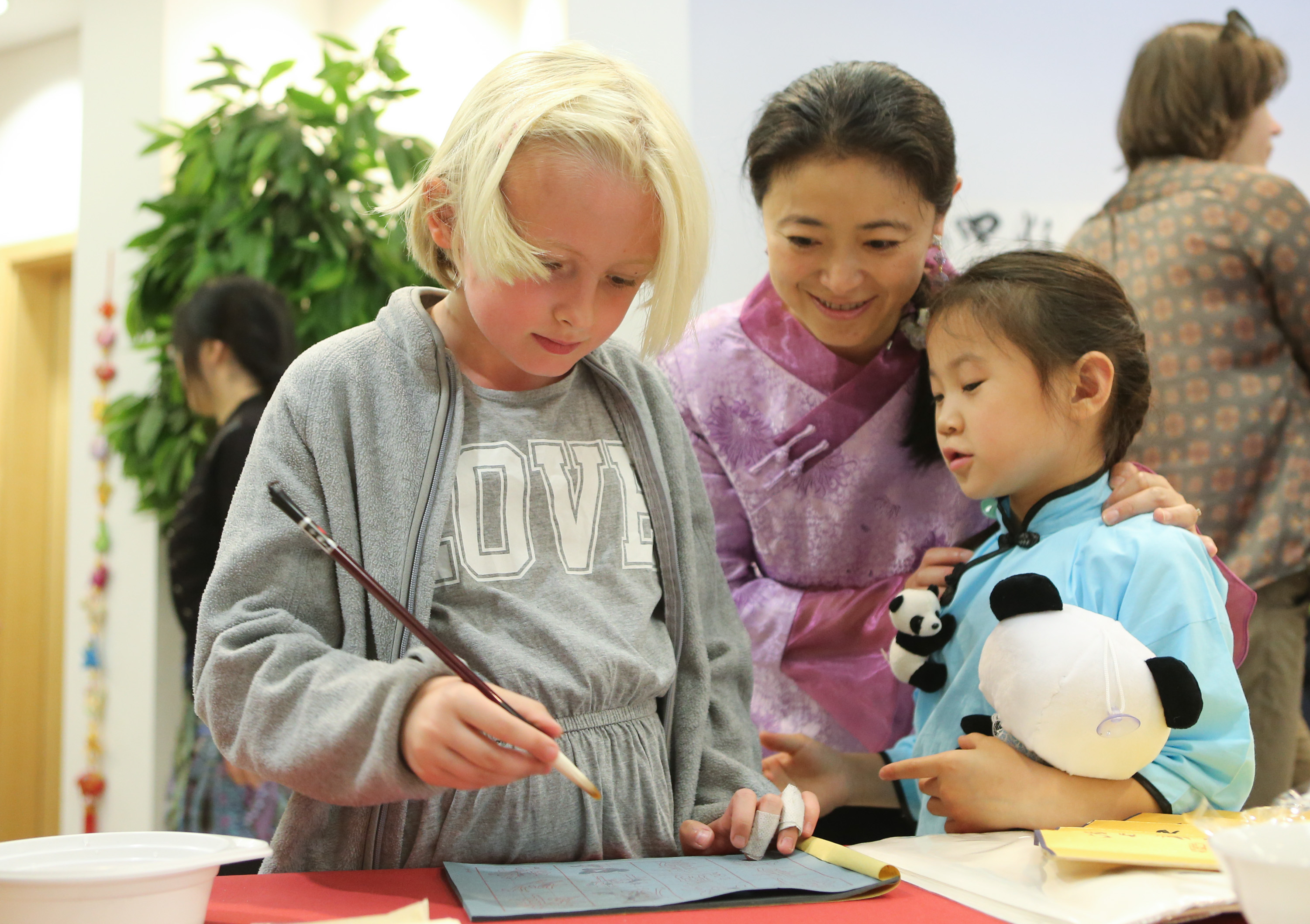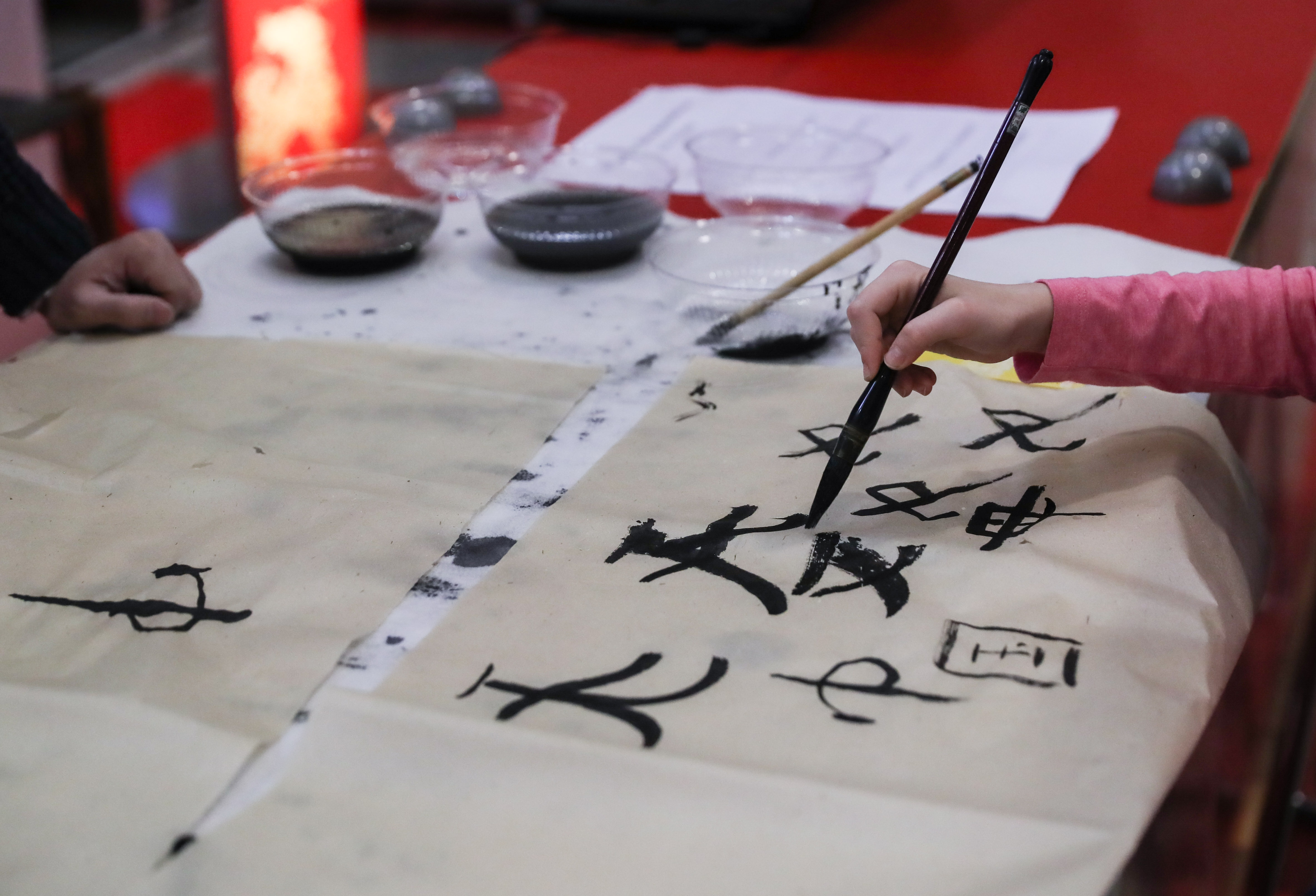
Students learn to pick tea leaves in Tianxin Village in Wuyishan City, southeast China's Fujian Province, April 9, 2019. (Xinhua/Song Weiwei)
"China Daily and the Global Times are my frequent readings," German sinologist Wolfgang Kubin said, adding that he believes the value of hardwork explains New China's success since its founding 70 years ago.
by Ren Ke, Lian Zhen, Wang Bowen
BERLIN, Sept. 7 (Xinhua) -- The fact that Western media reports on China, including German reports, are biased and unfair might stem from an unconscious stereotype shaped by ideology, German sinologist Wolfgang Kubin told Xinhua recently.
According to the German poet, essayist, sinologist and translator of literary works, what lies behind the phenomenon of the Western media's often ill-founded views of China might be profound and difficult to define but remains worth exploring.
Kubin is a lifetime professor at German's University of Bonn.
He was the former director of the Institute for Oriental and Asian Studies at the university and has translated 100 ancient Chinese poetry anthologies, philosophical works, and contemporary literary works.
He recently finished the translation of the autobiography of a well-read Chinese poet Bei Dao and is now translating the works of Chinese philosopher Mo-tse.
"Chinese culture has always influenced the culture of Germany. As early as the 19th century, many Chinese works were translated into German. Many German scholars also learned about Chinese literature and philosophy from French and English translations," said the sinologist.

A child visitor tries Chinese calligraphy during the Day of open embassies at China's embassy in Berlin, Germany, on Jun. 28, 2014. (Xinhua/Zhang Fan)
In the last century, Gustav Mahler, an Austrian composer from Vienna, used the German version of seven poems by Chinese legendary poet Li Bai as the lyrics for his composition Symphonie No. 9.
"Although this version of translation is not very good, it was widely quoted by later German works. Besides, as Li advocates for freedom, he was also quoted by many other scholars," said Kubin.
"Chinese philosophy has also been influencing German philosophy," he said.
For instance, the philosophical thoughts of the famous German philosopher Martin Heidegger were greatly influenced after he read the translation of Chinese philosopher Chuang-tzu by German sinologist Richard Wilhelm.
Kubin also recalled his first acquaintance with Chinese culture.
"In 1967, when I read the American poet Ezra Pound's translation of Li Bai's poem "Seeing Meng Haoran Off from Yellow Crane Tower", I was amazed by the aesthetics of Chinese poetry ... the indirect expression of emotions has rendered readers a wider space for imagination."
Kubin said he has since then been captivated by the beauty of connotation, which is rarely found in German poetry.

A girl practices Chinese calligraphy during the series of cultural celebrations "Happy Chinese New Year", in Berlin, capital of Germany, on February 1, 2018. (Xinhua/Shan Yuqi)
Besides spending much of his time studying Sinology, the German sinologist is also very much concerned with current affairs in China.
"China Daily and the Global Times are my frequent readings," Kubin said, adding that he believes the value of hardwork explains New China's success since its founding 70 years ago.
"Besides, the Chinese people are far-sighted," said Kubin, who said the Belt and Road Initiative proposed by Chinese President Xi Jinping is exemplary of this vision.
While praising China's rise, the sinologist also cautioned that social problems often accompany rapid economic development.
"I think some people are having a hard time psychologically during this rapid development," Kubin said, advising that China should do more to tackle mental health issues.



